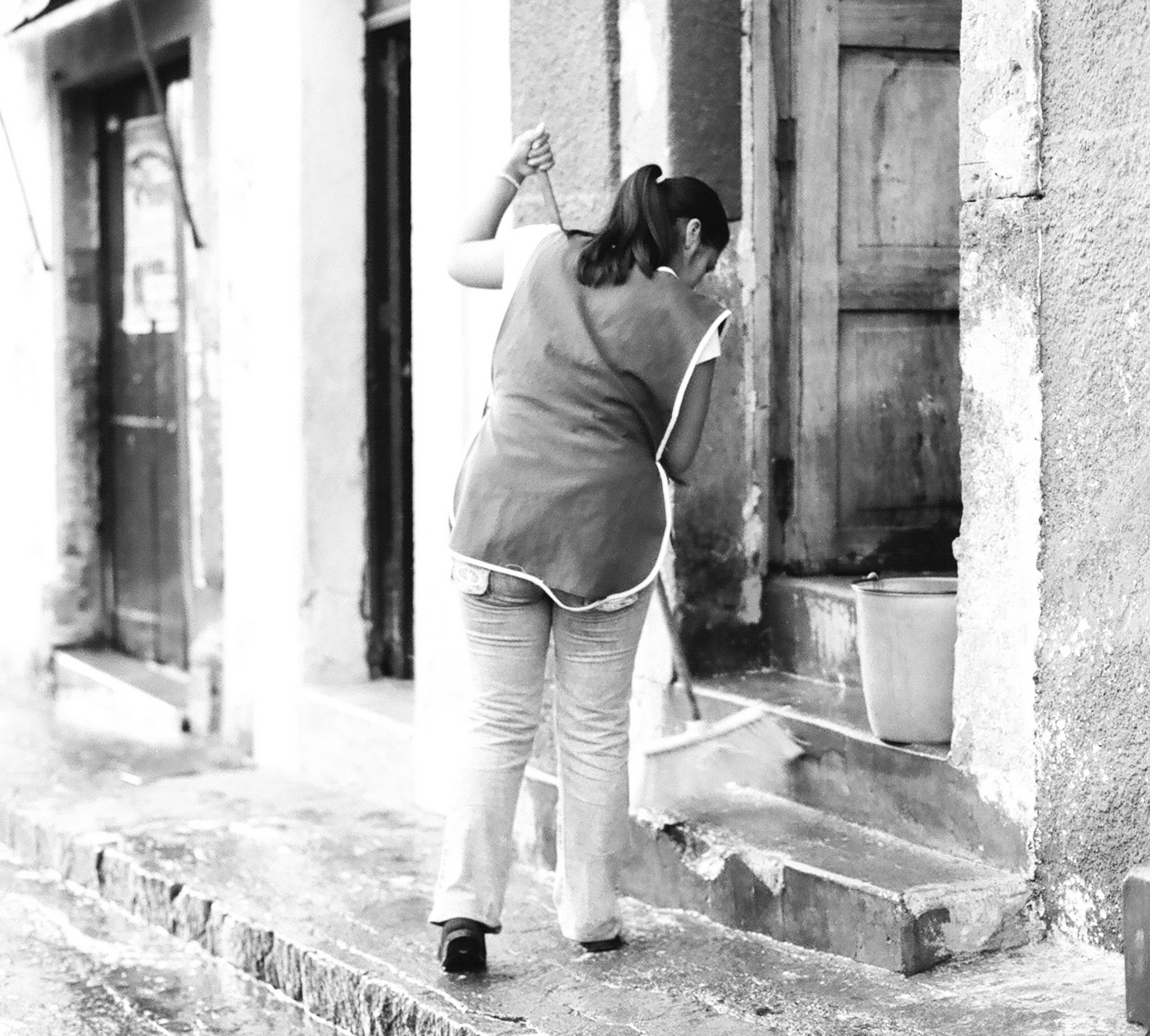When the film “Roma” by Mexican writer/director Alfonso Cuarón was released in November, it shed light on domestic workers in Mexico – a group that had been overlooked for a long time.
Domestic workers normally work from sunup to sundown, without contracts and without benefits. But a month after “Roma”‘s release, the Mexican Supreme Court delivered a landmark decision on behalf of domestic workers, bringing further attention to their struggles.
For many Texans, the life of a domestic worker in a foreign country is, well, foreign. But “Roma” can serve as a guide.
The story is about Alfonso Cuarón’s childhood in Mexico City. Cuarón grew up in a middle-class neighborhood called Roma, and in the film, the main character is Cleo, the family’s live-in domestic worker.
Cleo is part-maid who wakes up before everyone else, making sure the meals are ready and the house is clean. She’s also part-nanny who gets the family’s three children ready for school in the mornings and ready for bed at night, with lullabies and bedtime stories.
Cleo is the pillar of the family, the one who keeps things under control as the parents’ marriage disintegrates. The film’s portrayal of Cleo’s experience and the family’s drama is honest and raw. But Cuarón also admitted in an interview on “The Tonight Show Starring Jimmy Fallon” that it’s one-sided.
“Everything comes out of my memory,” Cuarón told Fallon.
The film presents a romantic view of Cuarón’s childhood, and it is visually gorgeous. Fallon called it “stunning.”
“I just can’t even tell you – it was like watching a moving-painting to me, or like, every scene was like a beautiful poem. It was beautiful,” Fallon said.
But the view of the film through Petra González’s eyes is quite different. González was also a young domestic worker in Mexico City in the 1970s.
“Yo veía la película “Roma” y recordé, son recuerdos no gratos,”González says in Spanish. “As I watched the movie ‘Roma,’ it brought back memories, and the memories were not pleasant.”
The memories go back to when González was a child worker at a home not far from the Roma neighborhood. A family hired González to wash dishes – a never-ending task since she worked for a family of eight people.
“Yo era muy pequeña, me ponían un cartón de cerveza Corona para alcanzar el fregadero.” González says. “I was so little, they put me on a crate of Corona beers so I could stand on it and reach the sink.”
The family paid González 30 pesos per month – equivalent to about $1.50 per month in 2019 dollars. It was an indignantly low salary even back in the ’70s. But González says her employers also fed her three meals a day, and that was a blessing because her parents were poor and had six other children. She says at home, she often went hungry.
When González was a teenager, she started working for a wealthy man who was divorced and was the sole caregiver of his 90-year-old mother. The man was 63 and he quickly engaged sexually with 16-year-old González.
“Pues fue ventajoso, en realidad puedo decir, que él abusó porque él tenía la madurez suficiente,” González says. “Well, you could say he took advantage of me. I can now say that was abuse because he was a mature man.”
If the thought of extremely low wages, sexual abuse and child labor make you wonder, “How is that possible?” scholar Julio Ríos Figueroa can help explain.
“Mexico is a very unequal society,” Ríos says.
Ríos is a political scientist at Centro de Investigación y Docencia Económicas in Mexico City who studies the Mexican Supreme Court. The court’s recent ruling in favor of domestic workers’ rights was a departure from long-held norms in the country.
“The case was about discrimination at work, and [that] it was a discriminatory practice. Ninety-plus-percent of domestic workers are women who are also from an indigenous region. So, the fact that they didn’t have regular contracts, regular working hours and all that was discriminatory against a particular group of people,” Ríos says.
So the court ordered that domestic workers be given the same rights as other workers. They’ll be enrolled in the country’s social security system, be given health care, maternity leave, paid vacations and pensions.
“They deserve it,” Ríos says.
The government has a three-year grace period to work out the details to bring in an estimated 2.3 million domestic workers into the new system.
During that time, González hopes government representatives go to the source to learn more.
“Necesitarían ponerse su delantal y servir para poderlo entender. Yo no puedo tener una visión de lo que no vivo. Tengo que vivir para saber,” González says. “I’d like for them to pick up an apron and serve as domestic workers [because] I can’t have a vision of the things I haven’t lived. You have to experience something to truly know about it.”
The word “roma” backwards spells “amor,” and critics have commented the movie is a love letter to the maids who reared Cuarón.
While the Mexican Supreme Court’s ruling is short of a love letter, it is a decree that Ríos says, at last, delivers justice.

















